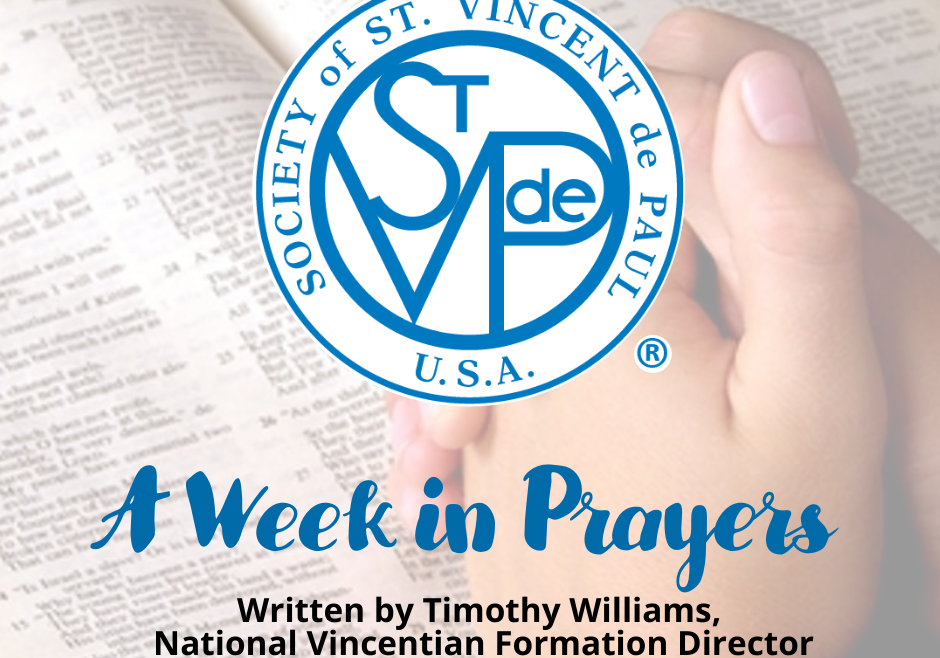One of the four permanent principles of the church’s social doctrine is solidarity, which is a “common path of individuals and peoples towards an ever more committed unity.” [CSDC, 192] Whatever may separate us on the surface, each of us is created in God’s image, and meant to live in community. Solidarity reminds us that we are all dependent and interdependent upon each other.
As Vincentians, we often encounter those who are deprived materially, and who, because of their deprivation feel separated, forgotten by the rest of society. It isn’t only that they cannot afford “the finer things in life,” but that over time, they begin to feel those things are not really meant for people like themselves.
At the same time, there is nothing easier for people of means to say, in all sincerity, that money doesn’t matter to them, or to find their lives empty despite material comforts. Whatever our station, it is easy for us to allow our circumstances to separate us from others, and thus from God’s plan.
It was one of Bl. Rosalie Rendu’s great insights that the “poor rich…are more to be pitied than we think; they have griefs and trials that the poor know nothing about. If the poor knew what those poor rich often have to suffer, they would not envy them as they do.” [O’Meara, 33]
The “poor rich”, many of whom Rosalie found “would be so glad to help the poor, if they knew how to go about it”, became, through “the luxury of her sympathy”, friends to the poor. [Ibid, 35]
It was said that in Bl. Rosalie’s parlor, awaiting her wise counsel, the rich and poor sat side by side on the straw chairs, with no rank or status separating them. To each she offered her love, and from each she asked for help.
Indeed, as Pope Saint John Paul II teaches, our exercise of solidarity “is valid when its members recognize one another as persons”, the strong and the weak, the rich and the poor together, each of us and all of us pursuing the good of the other. [Sollicitudo Rei Socialis, 39]
In living and fostering the moral virtue of solidarity, Bl. Rosalie became known as “the Good Mother of All”. More than 50,000 Parisians turned out for her funeral procession in 1856, and the people of Paris donated a tombstone which stands as a tribute to “the Good Mother” and a monument to solidarity from her “grateful friends, the poor and the rich”.
Contemplate
How can I be a more “grateful friend” in all my social interactions?



Speak, Lord, Your servant is listening
Yours is the word of life.
My eyes are cast towards the heavens
To seek the eternal light.
For the kingdom, the power, the glory,
And I are Yours with which to make
A labor of love unceasing,
In Your name and for Your sake.
Amen